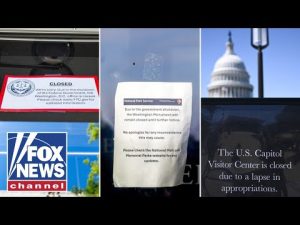At a recent Senate hearing, the spotlight was aimed directly at the growing issue of crime. Well, sort of. Instead of addressing straightforward solutions like bolstering police forces, the focus hilariously pivoted to something called “2Spirit” individuals. No, this term doesn’t involve a superhero duo, but seems to be the latest entry in a growing list of buzzwords used in progressive circles. One might wonder exactly what “2Spirit” means and how it’s supposed to help tackle crime. To paraphrase a well-known saying, when all else fails, create a new identity category.
The scene was set with Senator Josh Hawley probing a witness brought in by Democrats. The witness, it seems, unknowingly authored paperwork suggesting less funding for police and more for creating “safe spaces” for these mentioned “2Spirit” individuals. As Hawley pressed him to define this term, the poor fellow fumbled, desperately clutching for words like a student who forgot to do their homework. It was clear he was caught in a tangle of politeness and political correctness, the likes of which almost approach a comic farce.
Now, you’d assume if someone is brought in to talk policy, they’d at least know their own talking points, right? But, as it turns out, maybe not. Instead, it looked like a classic case of someone caught in the crossfire of their political playbook, not even having skimmed the pages. It’s like showing up for a pop quiz without ever having cracked the textbook open: awkward for the participant, but entertaining for the audience watching this muddle unfold.
It’s worth pondering why simple questions become such a Herculean task for some. Here, Senator Hawley revealed what may be a hallmark of modern progressive discourse—complex terminology that nobody can quite explain without a cheat sheet. In the grand scheme of crime prevention, turning focus to terms few understand or can define seems more like writing a punchline rather than actionable policy. Imagine trying to counter crime with confusion rather than clarity.
As we chuckle at these bureaucratic antics, the bigger issue remains the approach to law and order. There’s a popular adage telling us if it isn’t broken, don’t fix it. It might be wise for legislators to heed this advice rather than venturing into territory where understanding is outstripped by abstract terms. Perhaps it’s time we steer back to common sense solutions—like supporting those institutions that keep our streets safe—without getting lost in a forest of terminology. After all, what truly matters is public safety, not the newest lexicon trend.







